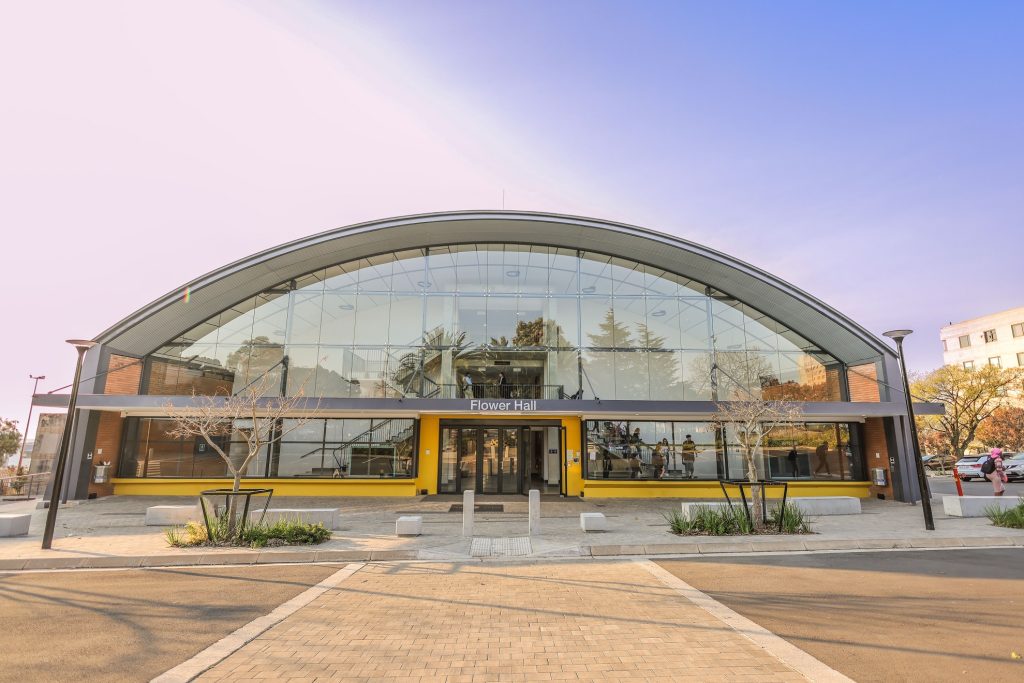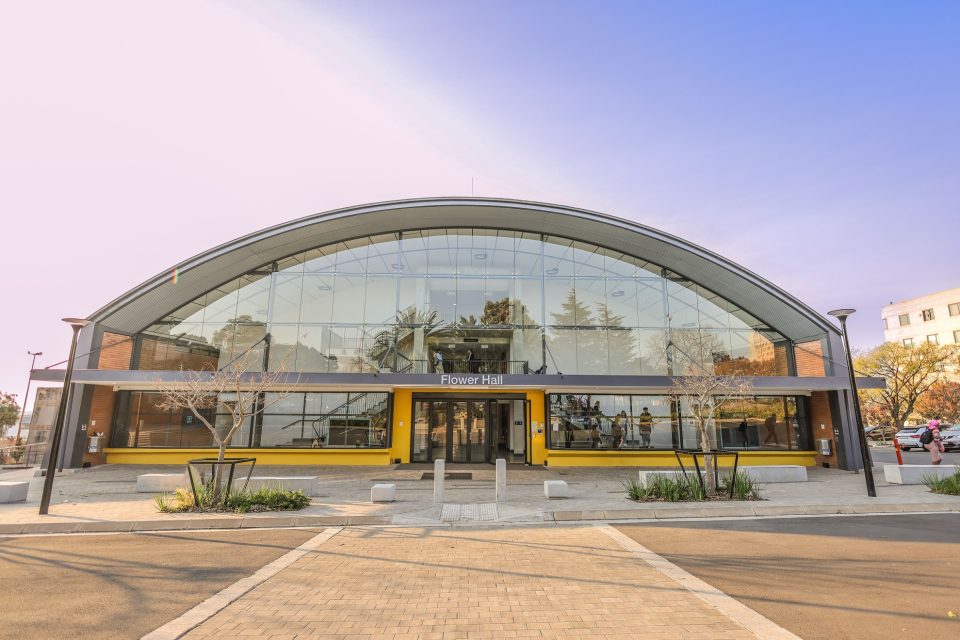
Johannesburg, South Africa – The Wits Flower Hall Examination and Test Centre, located on Wits Campus West, has been recognised for its transformation and sustainable design. The building has been shortlisted in the Creative Reuse category at the World Architecture Festival (WAF), which will take place in Singapore from 6 to 8 November 2024.
Originally part of the Rand Easter Show showgrounds, the Flower Hall has undergone a significant redevelopment led by Savage + Dodd Architects. The project turned the aging, uncomfortable exam venue into a modern, energy-efficient space that retains its historical significance while supporting contemporary needs. The renovation doubled the building’s seating capacity for tests and exams to over 1,000 seats, thanks to the addition of two new floors. The upgrade also introduced innovative energy-saving systems, such as a chilled beam system and HVAC, to enhance environmental sustainability. The aim was to create a comfortable space for students, which is a significant accomplishment given the building’s original purpose as an exam hall.
The building was originally designed to house the Wits Agricultural Society’s flower displays during the Rand Easter Show, completed in 1969. Today, the Flower Hall has been repurposed to serve the University’s growing need for testing and examination spaces. Looking ahead, Wits plans to further transform the building into a multi-laboratory facility while maintaining its architectural integrity.
The project has been lauded for preserving the building’s historical elements while enhancing its functionality. Savage + Dodd Architects designed the renovation with flexibility in mind, ensuring the building could later be transformed into a shared service laboratory facility.
The extension of a building’s life through adaptation and reuse is crucial for sustainability. It minimises the carbon footprint of construction by utilizing existing structures, and Wits has an excellent track record of repurposing buildings, as seen with the Wits Science Stadium.
This year’s WAF finalists include projects from 71 countries, with top contenders hailing from China, Australia, the United Kingdom, India, and Singapore.
INFO SUPPLIED.


